

Security, Open Borders and Travelism – Time for a Reality Check!
Brussels- Sitting at my desk, watching continuous news bulletins on the bombs at our airport and on our metro, makes me focus a little more on what has happened at an increasing number of destinations since 5 aircraft were hijacked at the same time in 1970 and how as a young man, I worked with IATA’s then Director General Knut Hammarskjold to help establish a security organization where one hadn’t been needed before. It made me realize how fragile we are to committed psychopath killers and how much unsung hard work has to go into our protection.
Given the massive ramp up of government and industry response mechanisms’ – particularly around aviation – since then and post 9/11, I’m tempted to raise my eyes to the heavens and say how can we protect an entire way of life from a growing number of crazy people planning lone (but orchestrated) terror attacks on an increasingly connected and vulnerable civilization.
Yet protect it we must – Travel & Transport connectivity is the lifeblood of our globalizing world and a base component for projected sustainable growth, poverty reduction and inclusive lifestyles, so we would do well to look at any and all ways that might make even a small difference.
But how can you protect every airport; every train station: every bus terminal: every underground entrance – everywhere? Because we are a linked system and because that’s what we will have to do if the Terrorism linked to radical Islam continues unabated. And yes I know it’s not the only form of terror out there and the others are just as despicable BUT the reality is that the horror attacks of the past three decades have mostly come from that source. I looked on Wikipedia and found some 30 pages of such attacks listed.
I don’t know the answers any more than the real experts who are looking at this but some things are becoming clearer.
- World Leaders needs to unite and act to defeat ISIS and any other anti-civilization groups and eradicate them – it may sound Donald Trumpish (aaaagh) but there are no other alternatives than to eliminate people whose life goal is to kill you. That is what wars are fought for and this is a war. We will never be free of this kind of barbarism – humanity never has – but we can dramatically reduce risks by getting behind the fight against radical extremism.
- Fellow Travellers inside our own community should look into the consequences of their tacit support for the crazy people and the propaganda they spread as a consequence.
- Major Transport Nodes – air specifically, but also land and sea – will need a progressive but rapid upgrade to scan entry more effectively and make the interiors sterile. It’s just too easy to wander in now unchallenged. It’s a modern day extension of the same issue we had when security checks were first established at airports in the 1970’s – with modern technology available to provide security and facilitation together. And over times this will sadly have to be extended further and further into our public places
- All the emotional stuff about open borders is not going to happen so we should stop preaching about it. We need secure borders with simple electronically enabled travel (like the Australian e-visa the you can get online so easily BUT you put all your details into the database which allows pre-flight checking with police and security services.)
- We should look at out of the box solutions to the alleged consequences of global wars like Syria – eg the EU should lease for 50 years some of Greece’s 1000 uninhabited island and turn them into model refugee reception points with decent planned facilities and working economies – maybe built on Tourism (an idea developed from an original thought by Egyptian billionaire Nabil Sawiris) and maybe also helping Greece’s debt problem. And we should build Green Growth and Climate Resilience from the outset with renewable energy and decent living conditions part of the specs and even perhaps providing holidays for disadvantaged people who normally don’t get the chance of a vacation.
- This would be a great project for the EU because it would be a positive collective effort to help the poor homeless refugees to prepare for a better life. It would ease the strain on national borders and treasuries. It would be a good infrastructure building stimulus. It would be a good social inclusion initiative. Last but not least it might seriously help with Greece’s debt problems.
- It would also be a great project to unite the Travelism Industry behind – someone with money (eg Mr Sawiris, or Sir Richard Branson) might like to put up the money to bring a group of out of the box thinkers together to see where they could take it.
Observation by Professor Geoffrey Lipman President ICTP
Founder SUN – Strong Universal Network for Climate Resilience and Green Growth.
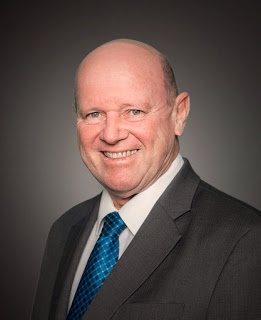
Appeal for ministers of tourism not to be by-standers in assault on travel industry
The Belgium terrorist attack brings Presidents and Heads of States together as they send messages of condolence to the Kingdom of Belgium
Another sad day for the Community of Nations as the world hears of more bomb blasts now labeled Acts of Terror. Below is a message sent by President James Michel of the Seychelles to the Kingdom of Belgium. Similar words were echoed by President Obama of the USA and Prime Minister Cameron of the UK as they made statements to the press in the hours following the Belgium bomb attacks.
Only last week I posted the message from Egypt announcing the closure of some dive centres, decisions that was set to impact on the tourism industry of Egypt and on the country’s economy. The People of Egypt will now suffer because tourism remains the most vulnerable industry and Acts of Terror or bomb attacks creates instability and would-be tourists stay at home.
Just last week I appealed for Ministers of Tourism not to be by-standers in this assault of their industry. The Secretary General of the UNWTO, Mr Taleb Rifai earlier this year rallied some 8o Tourism Ministers and other high officials for a meeting in Madrid to discuss exactly the question of tourism and instability.
The Madrid meeting was the result of an appeal I had personally made to Mr Taleb Rifai.
In Madrid we had all agreed that we needed the main press houses to understand our appeal, but every assault on Member States of UNWTO we continue to see headlines depicting yet “another star is born” . The world needs more than ever before to see political leaders sit with the press to discuss the right to information versus the right to life and economic stability.
I offered Seychelles as the venue for such a meeting under the auspices of the UNWTO and my offer stands today as it did late last year after the Paris bombings.
Alain St.Ange
Minister of Tourism and Culture
Republic of Seychelles

2050 No-Carbon-Aviation “Moon-shot” for Green Growth
Brussels / Hawaii / Seychelles – In a Keynote address to the CAPA Aviation Summit, Professor Geoffrey Lipman,President of ICTP (International Coalition of Tourism Partners), focused on what he called “the new Global Sustainability Agenda”, the existential nature of Climate Change and a long-term vision of no-carbon aviation.
 He referenced connected 2015 Heads of State Summits on Development Financing, Sustainable Development Goals (SDG) and Climate, as well as the 2016 Habitat for Humanity meeting, as a new, UN driven, platform for Green Growth. He noted the 2030 date for achievement of the SDG’s with 17 Goals, 169 Targets and 304 indicators on “The Future We Want”, with 2050 as the ultimate deadline for Climate stabilization.
He referenced connected 2015 Heads of State Summits on Development Financing, Sustainable Development Goals (SDG) and Climate, as well as the 2016 Habitat for Humanity meeting, as a new, UN driven, platform for Green Growth. He noted the 2030 date for achievement of the SDG’s with 17 Goals, 169 Targets and 304 indicators on “The Future We Want”, with 2050 as the ultimate deadline for Climate stabilization.
Lipman said that the Paris Cop 21 meeting had seen a landmark recognition by virtually every State to work together to eliminate all greenhouse gases, as well as a new realization that a 2 degrees’ temperature rise was a maximum permissible increase for tolerable lifestyles. National commitments would be reviewed every 5 years, with a view to ratcheting them to higher levels and a figure of less than 1.5 degrees increasingly emerging as a sustainability goal.
Aviation will be integrated into this framework by an agreement at the end of 2016 through a parallel track in the International Civil Aviation Organization (ICAO) and he underscored the responsibility of ICAO to at least meet and ideally surpass the Paris directions. It’s “four pillar strategy”, developed with full engagement of the industry has been established to do that – with a combination of technology, infrastructure, operations and market based, carbon reduction measures.
Lipman said that the current ICAO approach has been carefully developed, with the industry and in synch with the Paris UNFCCC process. Despite some fundamental institutional differences around “differentiated commitments” it is moving forward positively – it is an essential step in establishing a global base to control greenhouse gases from the sector.
The core challenge is that while the Aviation consensus has been building, over the past decade, the climate change goal posts have moved significantly. The life threatening impacts are more widely accepted; ice caps are melting, oceans are warming and greenhouse gases are growing – all at unsustainable levels. There are more extreme storms, floods, fires, droughts, air pollution and migration. In short we face an existential threat in a matter of decades, if we fail to act coherently now.
Against this backdrop the current aviation goals, show a 2050 reduction of carbon to 50% of historic levels, while encompassing continuous high growth and very positive socio- economic development. While this is a major control on carbon growth rates it will still leave significant annual carbon output. Aviation – unlike almost all other sectors – has limited projected alternative fuel potential, so its carbon output, relative to other sectors is escalating. This has been estimated to account for between 10-20% of total 2050 annual global carbon output, compared to 2-3% today – without covering other greenhouse gases. Our sector will be increasingly challenged by this unless we adopt visionary new strategies and focus resources to support this.
Lipman said that we need a 2050 No-Carbon-Aviation “Moon-shot” – accelerating the search for alternative aviation fuels and propulsion. Investment in substitutes for fossil fuel is increasing dramatically – from public research and incentives, to industry re-allocation of resources and impact investment.
The new Bill Gates led “Breakthrough Energy Coalition” is raising billions of dollars for this massive refocus on radical technology innovation. Air Transport fuel must be a priority. It will need new coalitions, organization, metrics and financing. On this later point he stressed that any proceeds from market mechanisms, climate taxes or passenger levies on the sector must form a substantial “Moon-shot” funding base, that could be matched from other breakthrough energy sources.
 Finally, he called on the entire Travelism sector, to embrace transformation, stressing the fact that we have been prioritized by the G20 and the UN system as a vital employment, trade and development agent, He pledged the support of SUN – a network of prefabricated, solar powered, web connected support centres – as an emerging tool for climate resilience and SDG implementation.
Finally, he called on the entire Travelism sector, to embrace transformation, stressing the fact that we have been prioritized by the G20 and the UN system as a vital employment, trade and development agent, He pledged the support of SUN – a network of prefabricated, solar powered, web connected support centres – as an emerging tool for climate resilience and SDG implementation.
Lipman added that Aviation climate resilience would become a key element of its Green Growth mission.
For more information: www.thesunprogram.com and [email protected]
ICTP: www.ictp.travel

Tourism and Security – the situation needs our leaders attention
Seychelles Minister of Tourism Alain St.Ange added this commentary. “
In Madrid as FITUR 2016 got underway a Tourism Ministerial meeting was called by Tabel Rifai, the Secretary General of the United Nations World Tourism Organisation (UNWTO) to discuss tourism and security. The idea for the Ministers of Tourism to stop being bye-standers anymore when their tourism industry was under assault was an idea floated by Minister Alain St.Ange, the Seychelles Minister responsible for Tourism and Culture in a letter addressed to the Secretary General Of the UNWTO.
But today as we see the continued effects of instability in the tourism industry as a result of insecurity or the perception of insecurity we have to ask if the world of tourism is doing enough to sensitize the press on how the tourism industry is affected when would be terrorists are given airtime to vent their anger at the world and hard working members of the community of nations.
See recent post on Facebook by Werner Gesser
This message just reached me. It’s a letter from a German Sharm el Sheikh attraction operator to his/her clients and friends.
The letter reads:
Sinai Divers will close in Sharm : We are so sorry to inform you, that we will have to close temporarily our diving Center in Sharm el Sheikh as of the 1st of April 2016.
It was an extremely difficult decision for us to take and we hesitated for a long time to make this announcement. During the past three years, the economical situation in Sinai and especially in Sharm el Sheikh has become increasingly difficult. Since the incident last October the situation became even worse with all direct flights being cancelled.
Many Hotels and Diving Centers had to close down in the last few months. We were hopeful that the direct flights from Europe would resume at the end of March, but unfortunately that is not the case. The major tour operators will not operate any flights again before November 2016. Without regular and sufficient bookings it became impossible for us to continue our daily operation.
We will inform you of any changes and should the flights to Sharm restart earlier than expected we will reopen the Center for sure. The Sinai Divers Backpacker Center in Dahab, the Oasis in Marsa Alam and the Center in Aqaba Jordan will continue operating as usual.
Of course we will stay in touch with you over Facebook and keep you updated with airline news, events happening in and around Sharm and post interesting articles and stories.
Rolf & Petra
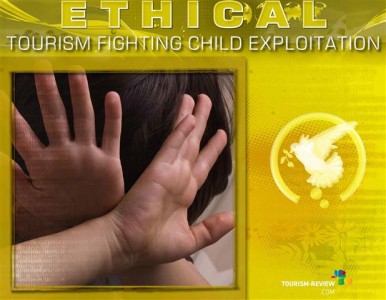
UNWTO on child exploitation: Nothing more than lip service?
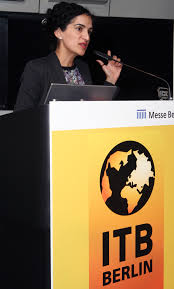 Tourism leaders around the world are pledging support to this initiative, and many voices of support have been heard over several years by a large contingency of world leaders and the United Nations World Tourism Organization (UNWTO).
Tourism leaders around the world are pledging support to this initiative, and many voices of support have been heard over several years by a large contingency of world leaders and the United Nations World Tourism Organization (UNWTO).
Alain St.Ange, the outspoken Seychelles Minister of Tourism and Culture, talked with UNWTO Wire on behalf of the newly-started Indian Ocean Vanilla Islands Organization on the topic of child exploitation in tourism.
Q: You were the founding President of the Indian Ocean Vanilla Islands – talk to us about your stand on child exploitation in tourism
Alain St.Ange: “It is sad that in this day and age, we are still talking about child exploitation, but the fact remains that this practice is still being promoted in different parts of the world and in different surroundings. As a region with tourism as its key industry, the Indian Ocean Vanilla Islands condemns child exploitation in tourism. Tourism is a people’s industry and remains an industry where respect must always be seen as the guiding strategy. The beautiful pictures of our dream islands would be artificial if underneath the surface, our innocent children were being exploited.”
Q: Do you personally condemn child exploitation in all its forms?
St.Ange: “To this pointed question, I simply answer with an unequivocal, “YES,” and I invite every Minister of Tourism to also openly make this statement.”
What has the World Tourism Network on Child Protection formerly the UNWTO Task Group against exploitation of children through tourism been doing over the many years this group has been in place?
eTN Publisher Juergen Steinmetz has been a member of this task group for almost a decade. He said: “We first had our task group meeting once a year in London during the World Travel Market (WTM), and once a year in Berlin during ITB. Several years ago, however, this was reduced to one yearly meeting during ITB only.
“All of us are dedicated volunteers or government officials and believe in this cause. I always paid my own way to travel to the other side of the world for this annual meeting, and donated my time, because I believed in this cause. I am sure this is the case with everyone else in our international group. “
“It is important for UNWTO as a United Nations agency to endorse and support the many global initiatives to fight this crime. Unfortunately, besides small talk, some excellent presentations, and a lot of lip service by UNWTO leaders, there has not been anything done by this group yet to be proud of.
For the last 5 years, this task group has been promised a budget of $5,000 to be used to showcase best practices on the official UNWTO website. Another proposed initiative was to establish a communication tool allowing task group members to communicate with other members of the group and to UNWTO officials. It has never been established. The webpage on unwto.org also was never established. The excuse: There is no staff and no money to maintain such an initiative. ”
Steinmetz went on to say: ” I applaud for UNWTO to hold this meeting, and to join THE CODE, but a lot more has to be done together with member countries, the World Travel and Tourism Council, (WTTC) PATA, ETOA and other credited leaders of our wonderful and money making industry.”
“I brought in this initiative, and it was seconded by every member of our group. Yet, here we are 5 years later, and still no funds have been made available so that we can move forward. Every year, I publicly voiced my criticism and confusion about the role of our UNWTO Task group, only to receive no response whatsoever. And then another year would go by, and we would be meeting at ITB again a year later in the same starting position, with no progress having been made.”
“Let us hope that ITB 2016 will mark not only 50 years ITB Berlin and a showcase of this billion-dollar travel industry, but also the beginning for UNWTO to finally put some resources behind this initiative and allow this task group to at the very least endorse some positive initiatives that can shared with the world. Incredibly, this task group has been in existence for 31 meetings, and this situation is quite embarrassing and shows it’s definitely not a priority by the UNWTO leadership as always proclaimed.”
“I will not be part of this group in 2017, if after the conclusion of ITB 2016, we don’t hear anything again for another full year. Protecting our children should be a top priority for the United Nations World Tourism Organization and the governments that make up this global group. i don’t think $5000.00 should stand in the way to endorse and share so many excellent activities by private groups, governments, police to combat this crime. I don’t want our industry to conspire with those that target our children for unspeakable acts committed within our great industry. A billion tourists and finding $5000.00 is not possible – this cannot be true.”
Even worse, entire industries had been absent from these meetings. For example, the billion Dollar Cruise Industry didn’t want to have any part of it and none of the cruise companies had any desire to include one of them to join the UNWTO Task Group.”
UNWTO Wire has reached out to UNWTO officials for comments, but so far no response has been received.
UNWTO will hold the 31st meeting of the World Tourism Network on Child Protection (March 10), when an initiative will take place to prevent all forms of child and youth exploitation in the tourism sector. Under the chairmanship of Carol Bellamy, the Chair of the Network and former Executive Director of UNICEF, the meeting will focus on Responsible Business Strategies and Child Protection in Tourism, highlighting the good practices championed by the tourism industry. The event will feature interventions from ABTA, TUI Group, and the Chair of the high-level global Task Force for the Protection of Children in Tourism, Najat Maalla M’jid, who will share the results of the Global Study on Sexual Exploitation of Children in Travel and Tourism.
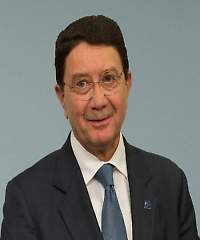
UNWTO Taleb Rifai says no to another term – who will be the next Secretary General?
Secretary General Taleb Rifai has been a dependable fixture with the United Nations World Tourism Organization (UNWTO) for nearly a decade. When you hear the title of UNWTO Secretary General, his name and face automatically comes to mind. Taleb became the Secretary General in March 2009, serving before that as the Deputy Secretary General of the UN agency overlooking World Tourism from February 2006 to February 2009.
Taleb Rifai disclosed to ministers attending the World Travel Market in London earlier this month that he is going to resign as Secretary General at the next General Assembly in 2017 to be held in Chengdu, China.
This will open up the highest government position in the global travel and tourism world.
Who will run for the next Secretary General position? There is some time, and no one is campaigning yet, but here are some possible names.
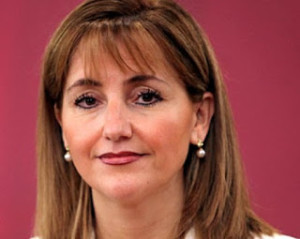
Gloria is a business executive who began her professional career at NCR Corporation in 1989 and worked in the IT industry in various roles, working for North America, Latin America, the Middle East, and Africa regions. Since 1995, she has worked for the travel and tourism industry in different capacities.
She was born in Guadalajara, Mexico, and holds a B.S. in Computer Science from Anahuac University and an MBA from the Kellogg School of Business at Northwestern University. She has studied in marketing, general management, project management, at such institutions as IPADE (PanAmerican Institute for High Business Direction), George Washington University, and other schools as well.
Ms. Manzo worked for Sabre Travel Network and Sabre Holdings for 15 years in a variety of positions. Based in Coral Gables, Florida, she had regional responsibilities and worked for the Latin America and Caribbean region. Later, she held global responsibilities as Vice President for Customer Solutions and Vendor Management in the CIO (what’s this? A place? A Title?) at the Sabre headquarter office in Southlake, Texas. Gloria was also the CEO of Sabre de Mexico, a joint venture between Aeromexico, Mexicana, and Sabre holdings, where she reported to the board of directors.
During Gloria’s time in the private sector, CNN and Expansion recognized her several years in the industry by naming her one of the most influential and powerful women in Mexico.
In March 2010, President Calderon appointed Gloria as the Secretary of Tourism, a cabinet position that leads a sector that contributes to 9% of Mexico’s GDP and employs 2.5 million people directly and 5 million indirectly, according to INEGI (the National Institute of Statistics and Geography of Mexico). Two weeks after her appointment, she was also given the responsibility of overseeing the Mexico Tourism Board.
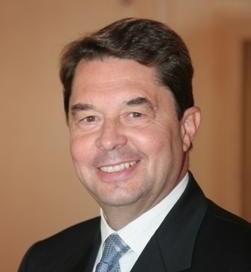 Carlos is currently Director-Executive Secretary of Member Relations at the World Tourism Organization based in Madrid, Spain. Between January 2009 and December 2013, he held the position of Regional Director for the Americas at UNWTO, which he currently also retains.
Carlos is currently Director-Executive Secretary of Member Relations at the World Tourism Organization based in Madrid, Spain. Between January 2009 and December 2013, he held the position of Regional Director for the Americas at UNWTO, which he currently also retains.
He is a professor at the University Rey Juan Carlos in Madrid for the Department of Business Economics, and is the author of various university textbooks on international tourism structure.
Mr. Vogeler started his career in the private sector at Pullmantur, one of the largest Spanish tour operators. During his 16 years of service from 1974 to 1990, he became Deputy Managing Director and introduced many innovations, namely expanding the number of destinations and products, opening new offices and new markets, mainly in Latin America. He also played an active role in the boards of the Spanish Travel Agencies Association and in UFTAA (United Federation of Travel Agents’ Associations).
From 1991 to 2008, he served in various senior management positions at Group RCI, part of Wyndham Worldwide, one of the world’s largest hospitality groups, where he was Managing Director for Southwestern Europe, covering Spain, France, Portugal, and Benelux. Later he was appointed as Vice president of Global Account Strategy & Industry Relations.
He was elected Chairman of the Affiliate Members of UNWTO from 2005 to 2008, representing Group RCI. Since 1997, he had been serving as Vice President of the board of the Affiliate Members and Chairman of the Business Council and is a member of the UNWTO Strategic Group.
He is also a founding member of the Spanish Association of Experts in Tourism (AECIT) and was a member of the International Association of Experts in Tourism (AIEST).
Carlos carried out his studies in Canada and in Spain, graduating in Tourism Business Administration from Escuela Oficial de Turismo de Madrid (now the University Rey Juan Carlos) and did his post-graduate studies at the IESE Business School of the University of Navarra in Spain.
Mr. Vogeler was born in Venezuela in 1952 and is a national of Spain and Venezuela.
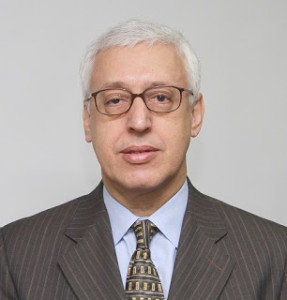 Favilla is currently Executive Director for Operational Programs and Institutional Relations at UNWTO based in Madrid, Spain. Between January 2010 and December 2013, he held the position of UNWTO Executive Director for Competitiveness, External Relations, and Partnerships.
Favilla is currently Executive Director for Operational Programs and Institutional Relations at UNWTO based in Madrid, Spain. Between January 2010 and December 2013, he held the position of UNWTO Executive Director for Competitiveness, External Relations, and Partnerships.
From April 2007, Mr. Favilla Lucca de Paula was Vice Minister of the Secretariat of Institutional Relations of the Presidency of Brazil.
Prior to this appointment, he was Brazil’s first Vice Minister of Tourism (2003-2007) where he played a key role in the structuring of the first exclusive Ministry of Tourism in Brazil.
During his term as Vice Minister of Tourism, he was actively involved in the development and implementation of the first National Tourism Plan and worked to increase both tourism arrivals into the country as well as domestic tourism.
He was also engaged in many of UNWTO’s activities as Head of the Brazilian delegation to all General Assembly and Executive Council sessions, and Chairman of the UNWTO Commission for the Americas in 2006.
From 1999 to 2002, he worked at the Ministry of Development, Industry, and International Trade as Head of the National Department for Business Registry among other positions.
Mr. Favilla Lucca de Paula was in Belo Horizonte from 1980 to 1998, first at the Development Bank of Minas Gerais and then as the State Secretariat for Finance of Minas Gerais.
Mr. Favilla Lucca de Paula has an MA in Development Studies from the Institute of Social Studies, The Hague, The Netherlands, where he specialized in Regional Development Planning (1985-1986). He obtained his undergraduate degree in Economics from the Federal University of Minas Gerais (1979).
Mr. Favilla Lucca de Paula is a Brazilian national, born in 1958.
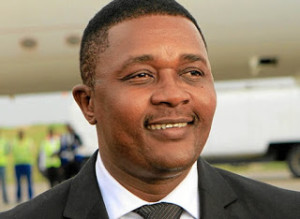 Mr. Mzembi is a Zimbabwean politician, currently serving as Minister of Tourism. He is a Member of the House of Assembly for Masvingo South (ZANU-PF).
Mr. Mzembi is a Zimbabwean politician, currently serving as Minister of Tourism. He is a Member of the House of Assembly for Masvingo South (ZANU-PF).
When the ZANU-PF Movement for Democratic Change national unity government was sworn in on February 13, 2009, Mzembi became Minister of Tourism. He has survived several shuffles in the cabinet of Zimbabwe, and of paramount importance it has been his role in the organizing the UNWTO to be co-hosted by Zimbabwe and Zambia in 2013. Mr. Mzembi has been outspoken and active within the UNWTO network and in the international arena.
In 2013, Seychelles President James Michel, named Alain St.Ange as the islands’ Minister of Tourism & Culture following a reshuffle of his Cabinet of Ministers.
Alain St.Ange is well known to the world of tourism. He was until now the dynamic and well-respected CEO of the Seychelles Tourism Board. Before that, he was a private-sector tourism personality, having managed accommodation establishments in the Seychelles, the Channel Islands in the UK, and in Australia. He has also been a former Chairman and Vice Chairman, respectively, of the SHTA (the Seychelles Hospitality & Tourism Association).
The published biography of 57-year-old Alain St.Ange in Who’s Who in Seychelles by James Mancham, the first President of the islands, shows that Alain St.Ange was born on the island of La Digue in October 1954, and that he followed his formal education at the Seychelles College on the main island of Mahe. He also followed Hotel Management Studies in Germany and Tourism Studies in France.
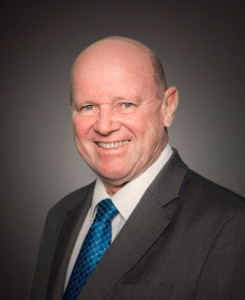 Alain St.Ange is well-known on the international scene, where he is a popular speaker at tourism forums and conventions. He has been credited with increasing the visibility of the Seychelles in all of the islands’ key markets and having turned the Seychelles tourism industry around since taking office, first as Director of Tourism and later as CEO of the islands’ Tourism Board.
Alain St.Ange is well-known on the international scene, where he is a popular speaker at tourism forums and conventions. He has been credited with increasing the visibility of the Seychelles in all of the islands’ key markets and having turned the Seychelles tourism industry around since taking office, first as Director of Tourism and later as CEO of the islands’ Tourism Board.
Alain St. Ange has been extremely active in UNWTO recently and brought a lot stronger voice to Africa as a whole. St.Ange is liked in all parts of the world. He is outspoken, approachable, and has single-handedly brought Seychelles to the global map as a world-class island destination.
The wild card is China. Since China won the bid for the 2017 General Assembly, it may have ambitions to also make a run for the UNWTO General Secretary position.
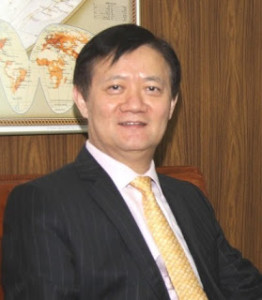 Mr. Xu Jing is currently Regional Director for Asia and the Pacific at UNWTO – a position he has occupied since the end of 2003. In addition to his regional responsibilities, as of January 2014, he was appointed UNWTO’s Director-Executive Secretary of the General Assembly and the Executive Council.
Mr. Xu Jing is currently Regional Director for Asia and the Pacific at UNWTO – a position he has occupied since the end of 2003. In addition to his regional responsibilities, as of January 2014, he was appointed UNWTO’s Director-Executive Secretary of the General Assembly and the Executive Council.
Mr. Xu Jing began his career in tourism at the China National Tourism Administration where he was in charge of the International Relations division. He joined UNWTO in 1992 as Officer to the Regional Representation for Asia and the Pacific. Over the years, he coordinated and supervised numerous UNWTO technical cooperation projects and sectoral support missions on subjects of contemporary interest to the tourism community of Asian countries.
In addition to the above, Mr. Xu Jing holds honorary academic positions in a number of universities, in some of which he has lectured on tourism issues of international and regional significance. These include the Chinese University of Hong Kong, University of Suzhou, Sun Yat-sen University, Shanghai Institute of Tourism, Hainan University and Hong Kong Polytechnic University, Kyunghee University (Republic of Korea), and University of Balearic Islands (Spain). He is also a senior advisor to the Chinese Municipalities of Guilin and Huangshan.
Mr. Xu Jing holds a Master’s Degree in Tourism Management from the University of Surrey in England and majored in English literature during his undergraduate studies in Beijing Second Foreign Language Institute.
